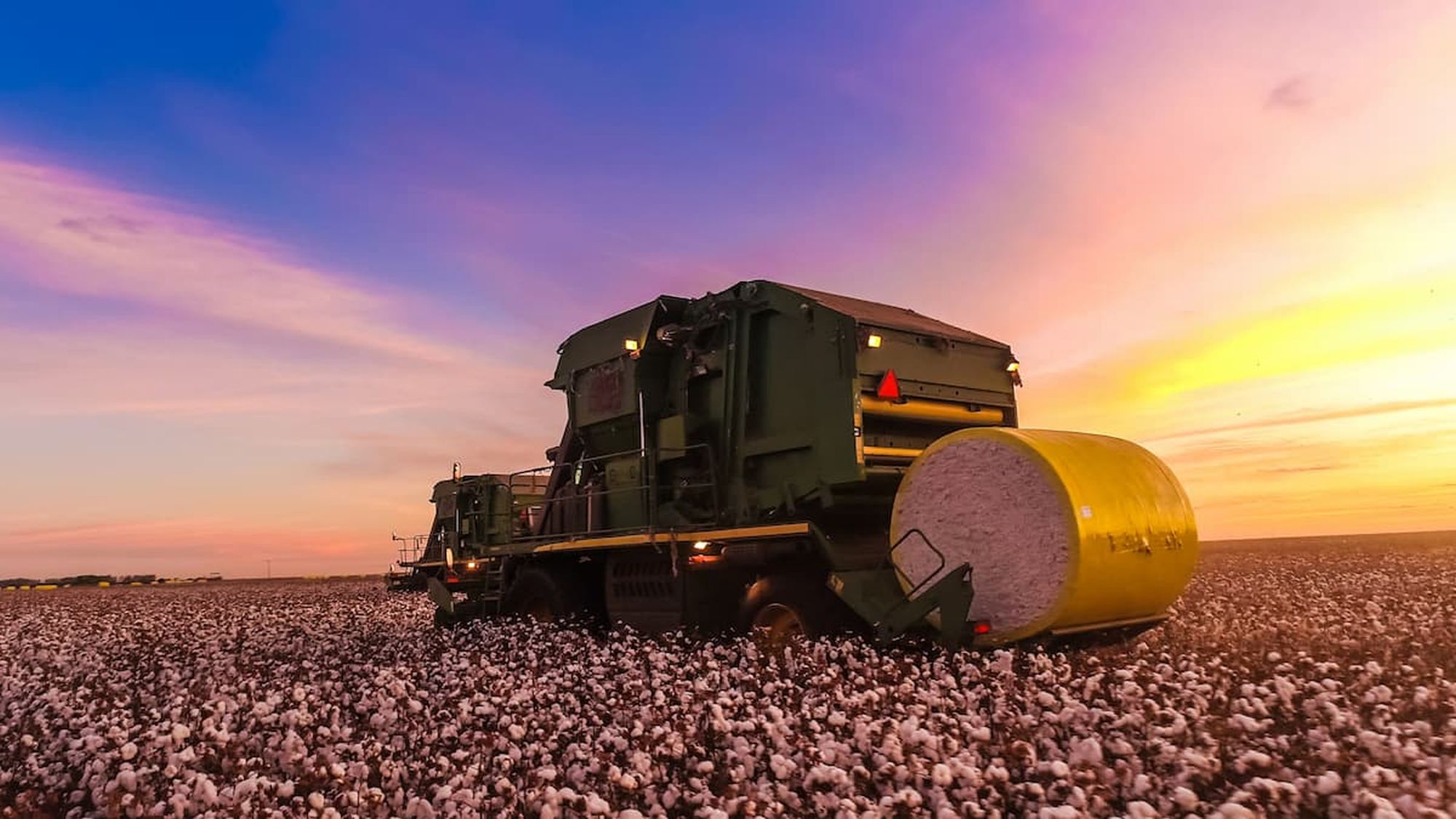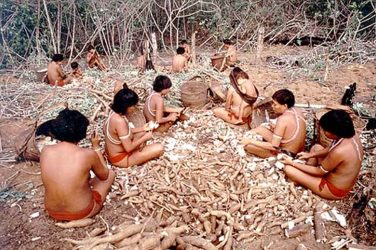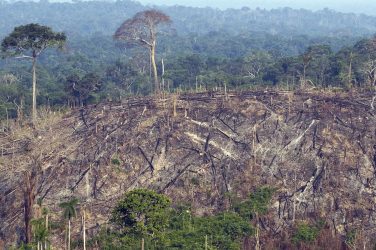Clothing factories that supply H&M and Zara are buying cotton linked to environmental destruction and land-grabbing in Brazil’s Cerrado – a biodiversity hotspot where deforestation is soaring, research by the Earthsight nonprofit has found.
While global concern has focused on the impact of beef and soy farming in the Amazon, deforestation alerts in Brazil’s lesser-known Cerrado tropical savannah jumped 44% in 2023, data from the National Institute for Space Research (INPE) shows.
Cotton is a major culprit as Brazil sets its sights on becoming the world’s biggest exporter, according to the Earthsight investigation.
“Corporations and consumers in Europe and North America are driving this destruction in a new way. Not by what they eat – but what they wear,” said the report.
Researchers from the group traced thousands of shipment records between two cotton producers it said were linked to land-grabbing and illegal deforestation in the Cerrado to Asian manufacturers that supply finished garments to brands including H&M and Zara – the world’s biggest and the focus of the Earthsight investigation.
The clothing factories are based in countries including Bangladesh and Indonesia.
The report said a sustainability standard used by the fashion brands called Better Cotton was “fundamentally flawed” and gave consumers no guarantee they were not buying cotton from Brazilian farms involved in environmental crimes.
Better Cotton certifies producers that meet its standards on sustainability and working practices, and says it covers 22% of global cotton production.
H&M described Earthsight’s initial findings as “highly concerning” and said it had asked Better Cotton to conduct a third-party investigation – the results of which a Better Cotton spokesperson said the organization was still analyzing.
A spokesperson for Zara-owner Inditex said Better Cotton “strictly prohibits” practices including land-grabbing and deforestation and that it takes “the allegations against Better Cotton extremely seriously”, pledging to monitor the outcome of the investigation.
Cotton boom in the Cerrado
Brazil’s cotton exports have risen sharply in the last decade due to booming output in the Cerrado, which has lost about half of its natural vegetation to agriculture and where laws restricting deforestation are less strict than in the Amazon.
Covering an area bigger than Mexico, the savannah includes forest areas and other vegetation vital to slowing global warming by absorbing and storing carbon. It is home to endangered animals such as the maned wolf and giant anteater.
It is also a key source of water for much of South America, but the spread of thirsty crops is threatening the water supplies of traditional communities and has driven them off grazing land they have used for generations, environmental researchers say.
“Communities have lost access to plateaus that used to have natural pastures where families’ cattle used to graze,” said Mauricio Correia Silva, a research consultant at the Lawyers Association in Defense of Rural Workers in Bahia state who has studied land-grabbing in the Cerrado.
At the center of the farming expansion is the Matopiba region, which includes part of Bahia and is the focus of the Earthsight research.
According to data from the IPAM environmental institute, three-quarters of the Cerrado vegetation lost in 2023 was located in Matopiba, home to the vast Agronegócio Estrondo estate, which produces mainly cotton, soy and corn.
Estrondo, which is composed of various farms, has been expanding into intact areas even nearer to villagers, and in the past set up checkpoints with armed security to restrict residents’ movements and activities, Earthsight said.
The estate is fighting land-grabbing charges filed by Bahia’s attorney general, and since 2004 two of its management companies have been fined 125 million reais (US$ 26 million) – in part over unauthorized land clearance, the report added.
Estrondo says that operations on its estate follow Brazilian environmental legislation, the fines are being contested and about 50 million reais ($9.9 million) have been canceled.
It said all its territory “has been legally constituted for over 40 years”, citing notary and government registries.
It added, however, it has been seeking a legal agreement regarding the transfer of titles related to a portion of the estate claimed by local communities.
Villagers living nearby have long complained of abuses as farmland spread across the area’s plateau, forcing locals to limit grazing to the well-preserved river margins where they live.
Peasant farmer Adão Batista Gomes, 62, whose family has lived in the region for generations, said his nephew was shot in the leg in 2019 by a man working for Estrondo as he tried to retrieve cattle being held by guards on a stockyard after wandering into an area claimed by farmers from the estate.
“They did it to frighten us, to make us give up that area,” he said.
Estrondo said “it vehemently disapproves the use of any type of violence”.
Land clearance and pesticides
While beef and soy farming are the biggest drivers of Cerrado land clearance, cotton’s impact on water supplies and the lack of protection for nearby communities are a major concern, said David Cleary, agriculture director at The Nature Conservancy, which was not involved in the Earthsight research.
Heavy pesticide use in cotton-farming is another threat to water supplies. Brazil, the world’s biggest buyer of pesticides, is notorious for authorizing the use of chemicals prohibited in other countries.
But Cleary said agribusiness-driven development had also brought important economic benefits to the region discussed in the report, noting a decline in infant mortality rates in what are some of the poorest rural areas in the country.
Now, more must be done to increase productivity on the millions of hectares already cleared, Cleary added.
“There’s an enormous amount of potential for different sorts of incentive schemes that can protect surviving vegetation in the Cerrado,” he said.
Earthsight called for the expansion and strengthening of ethical supply chain laws, such as the European Union’s deforestation regulation which does not cover cotton.
It criticized the effectiveness of private-sector efforts – namely Better Cotton – to reassure consumers about sustainability.
“The cotton we linked to land rights and environmental abuses in Bahia carried the Better Cotton label,” it said.
The spokesperson for Better Cotton – which partners with the Brazilian Association of Cotton Producers (ABRAPA) – said the issues raised by Earthsight demonstrate a “pressing need for government support in addressing the issues brought to light” and implementing the rule of law.
For Batista Gomes and fellow villagers, the damage from the spread of agriculture has already been done.
His community used to freely graze their cattle amid the savannah’s trees and rolling grassland, but that changed when farm employees first arrived in the 1980s.
“They told us the area belonged to the farm, that it was in the farm’s map,” he said. “Today it’s all crops, everything was deforested.”
This article was produced by the Thomson Reuters Foundation. Visit them at https://www.context.news/





